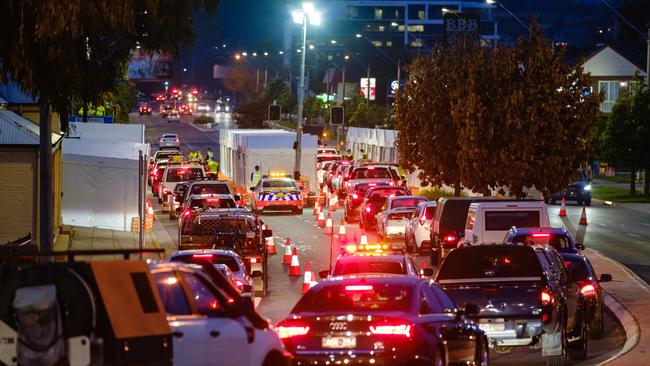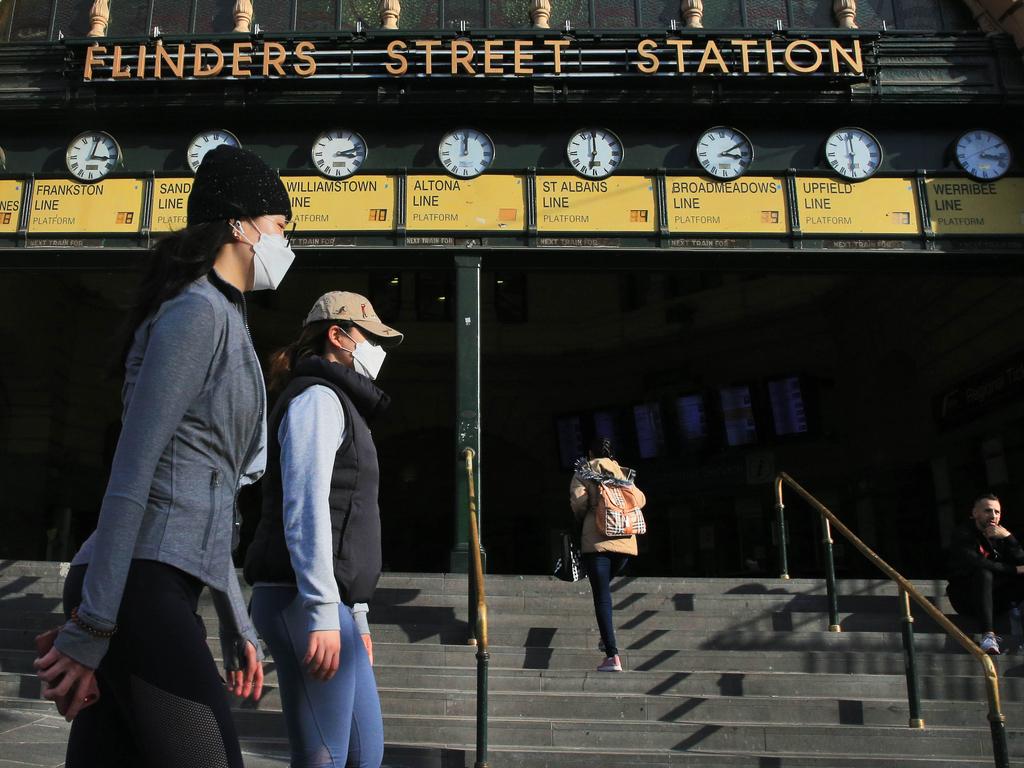End lockdown madness: COVID-19 crisis is unravelling federation

What the COVID crisis has shown is that despite the best efforts of our Prime Minister, our federation is unravelling before our eyes. Parochial premiers are, it seems, racing to outdo, outbid and outrace each other to smother any chance of economic recovery.
Consider this. Around a third of all jobs created in Australia since 2014 were in Melbourne’s new isolation city. Twenty-one per cent of Australian businesses are now in this bubble which produces $355bn of annual economic output. The Treasurer’s cost estimate of $1bn a week looks conservative.
But worse than that, all of Victoria and all Victorians are being treated as pariahs — an island within an island cast adrift. Even Premier Gladys Berejiklian, who sensibly argued against border closures when NSW had around the same number of active cases three months ago as Victoria now has, couldn’t resist padlocking the gates, demanding papers be produced and threatening to include the southern half of her state in an exclusion zone.
The reality is this. COVID will be with us for years to come. There is no quick fix — even if we remake history and develop a vaccine in less than three years, we still then need to inoculate ourselves and the rest of the world for anything like pre-COVID economic activity to resume.
There will be periodic pop-ups of COVID despite our best efforts. We will have to learn to adjust and adapt and live with it whether we like it or not. In the meantime, history tells us there will other pandemics.
We can’t keep taking a sledgehammer to our economy time and time again and expect businesses to survive, consumer confidence to remain above the waterline and jobs to be retained and created. Before the rest of the country turned its back on Victoria there were tentative signs of economic stabilisation and occasional pockets of increased activity even if there were deep concerns around what is to come in the months ahead. Now, again, the talk and fear is around further downturn.
It is true that Victoria’s handling of the health dimension of this crisis warrants the inevitable royal commission if only to ensure that when the next pandemic hits the mistakes are not repeated.
But we do not want that inquiry to have to extend into how we needlessly crippled ourselves economically. Simply amputating the Melbourne and Sydney connection is actually cutting off the world’s second busiest air route.
This crisis should give us pause to think how we can remake and reimagine our economy, our education and training system and our systems of work, as well as how to better play to our strengths and plug our deficiencies and build the resilience we all talk of.
Our economy pre-COVID was trundling along, being buffeted by geopolitical tensions and an inability to negotiate some of our bigger roadblocks. Our current predicament gives us the opportunity to make fundamental improvements, if we are courageous, to improve our competitiveness, productivity and perhaps, most importantly, fairness.
But putting up artificial barriers, closing borders and turning Australians against each other is not going to get us there. Our responses to the ongoing health situation must be proportionate and logical, not hysterical and irrational.
Residents of regional border towns like Wangaratta, Beechworth and Bright are being treated by political leaders like they live in the favelas of Brazil. Truck drivers, who since March have abided by COVID-safe agreements, should not be regarded as threats to society. This is madness.
So who will be hurt the worst? In every downturn those who lose their jobs first are our youth, including tens of thousands of apprentices and thousands more just starting out in retail and hospitality, as well as older workers. Many of the former will lose careers and be disconnected from the economy for years and older workers risk never getting jobs again.
A recent and sobering report from the National Apprentice Association found that 25,038 apprentices and trainees have been stood down, suspended or cancelled since March and predicts there could be 78,000 fewer apprentices and trainees in training by December out of an in-training stock of only 196,930. More than a third of all our apprentices could be out of training in months with massive impacts on our ability to provide skilled workers when our economy eventually rebounds.
Without underestimating the health risks, we would hope that state governments could have the ability to take more nuanced and localised approaches to dealing with the spread of this virus that takes account of all factors including the employment hardship and growing impact on mental health.
The false start to getting back to business ended by the Melbourne closure will sound the death knell for so many companies and so many jobs. Businesses, once bitten twice shy, will be even more cautious from now on.
More than ever, we need nationally focused action and flexible responses.
If we take anything from this crisis, it should be that we need a serious root and branch review of our federation that has an emphasis on strategies that deal with us all as Australians first and Queenslanders or Victorians second.
Innes Willox is chief executive of the national employer association Ai Group.





Melbourne is cut off from the rest of the country by a so-called “ring of steel” but, for totally unfathomable reasons, the rest of the nation has decided to excise all of Victoria from Australia.